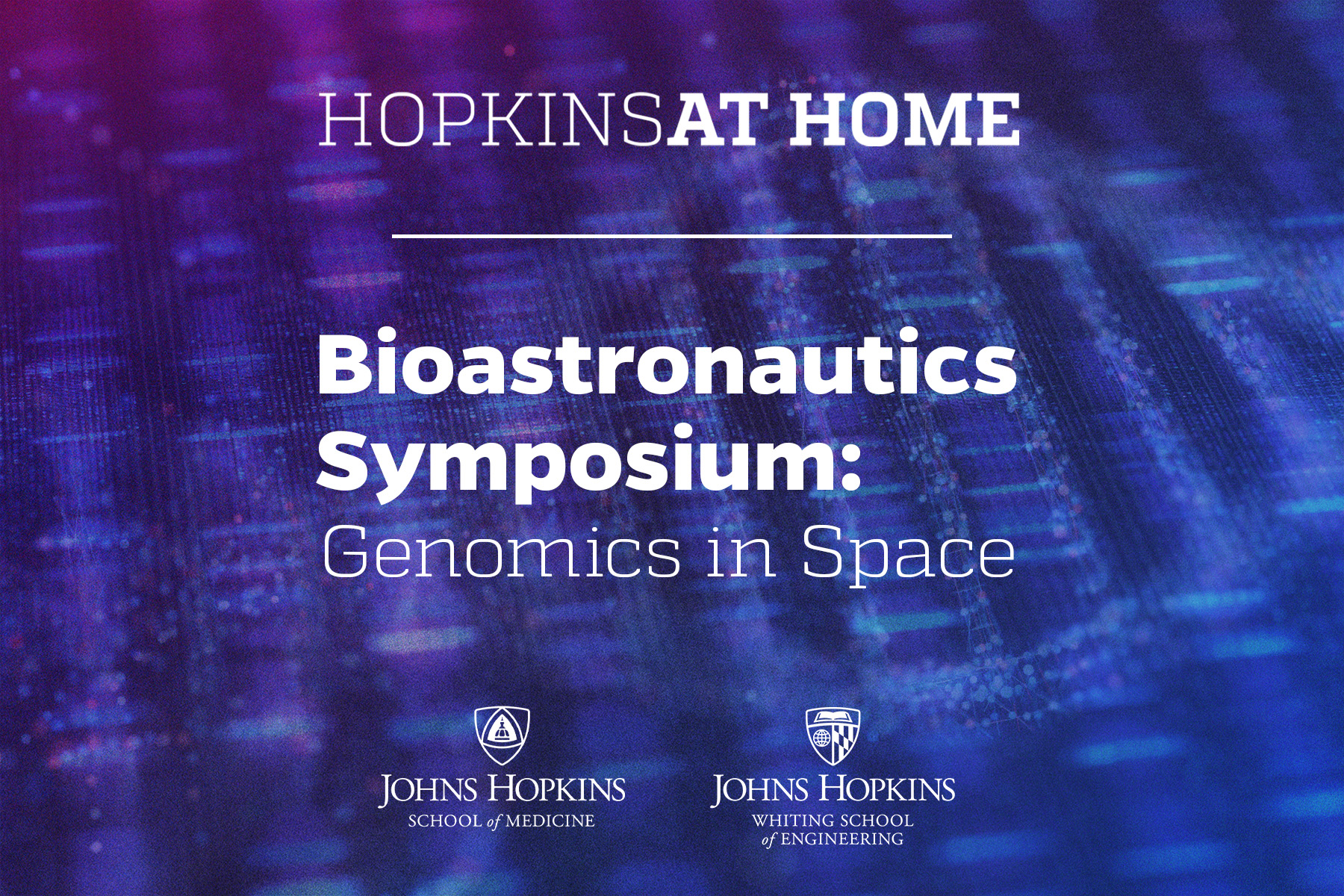Bioastronautics Symposium: Genomics in Space

Presented by the JHU Human Spaceflight Lab (bioastronautics@hopkins), the Whiting School of Engineering Office of Research and Translation, and Hopkins at Home
Click here to register and join the livestream on June 11th
In the near future, government spaceflights will become more ambitious, with the NASA Artemis program sending people back to the moon (and later missions going on to Mars). At the same time, commercial spaceflight providers (SpaceX, Axiom, Blue Origin) are sending people into space who might not have the same levels of health and fitness as government astronauts. Both of these circumstances will challenge the ability of humans to tolerate spaceflight and perform inflight tasks in an extreme environment. Among the approaches to address this issue is genomic analysis: assessing a given person’s genetic predisposition to tolerate the stressors of spaceflight, measuring changes in genetic (epigenetic) makeup as a consequence of spaceflight, and developing countermeasures to the effects of spaceflight based on these individualized and personalized responses. The speakers in this symposium are experts in this field and are at the forefront of research into spaceflight effects on the genome.
